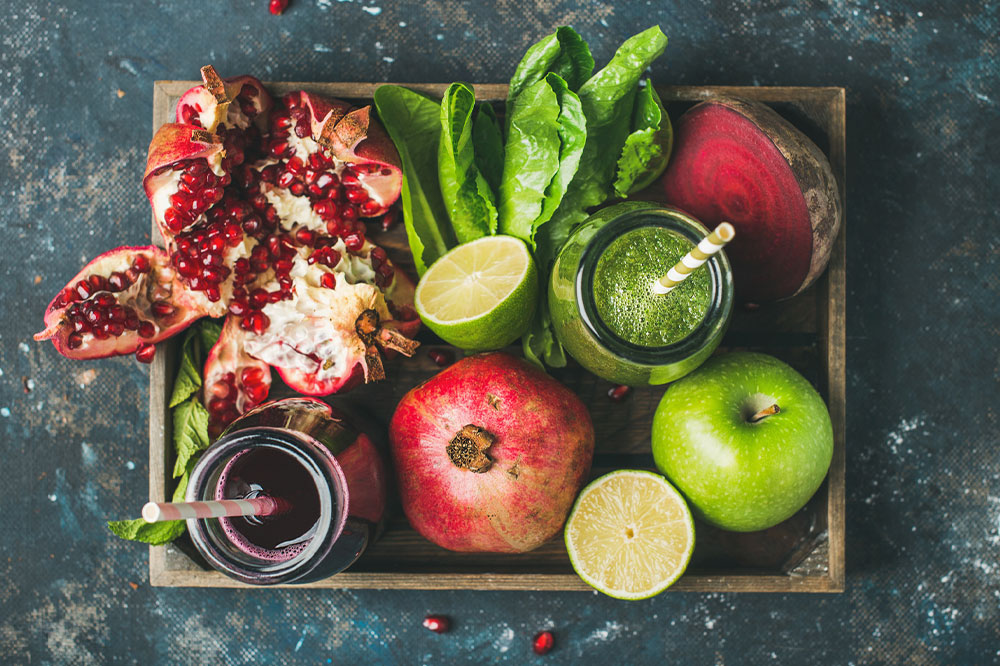Effective Everyday Strategies to Naturally Alleviate Heartburn
Discover comprehensive daily habits to naturally reduce heartburn and improve digestive health. From mindful eating and physical activity to sleep tips and wellness routines, learn practical strategies to manage acid reflux effectively without medication. Embrace these lifestyle changes for lasting relief and better overall wellbeing.

Effective Everyday Strategies to Naturally Alleviate Heartburn
Persistent heartburn, characterized by a burning sensation rising from your chest into your throat, can significantly affect your daily life. This common condition, often linked to acid reflux, occurs when stomach acid flows back into the esophagus, causing discomfort and sometimes pain. While occasional episodes are normal, frequent heartburn may signal underlying health issues such as gastroesophageal reflux disease (GERD) that require proper management. Fortunately, making conscious lifestyle and dietary changes can effectively reduce the severity and frequency of symptoms without reliance on medication. In this comprehensive guide, we explore proven daily habits that naturally combat heartburn, helping you restore comfort and improve your overall digestive health.
Understanding the causes of heartburn is crucial to preventing and managing it. Factors such as dietary choices, sleep patterns, lifestyle habits, and body weight play pivotal roles. The good news is that through simple yet consistent behavioral adjustments, you can dramatically decrease episodes of reflux, enjoy better digestion, and improve your quality of life.
Let’s delve into the most effective strategies to manage heartburn naturally and sustainably.
Adopt Mindful and Heart-Healthy Eating Habits: The foundation of preventing heartburn lies in what and how you eat. Processed foods laden with preservatives, high-fat meals, fried foods, and caffeinated beverages like coffee, tea, and soda are common triggers. They relax the lower esophageal sphincter (LES), the muscle that acts as a valve between the stomach and esophagus, allowing acid to escape. To reduce reflux, opt for a balanced diet rich in vegetables, lean proteins, whole grains, and fruits. Incorporating herbal teas such as chamomile or ginger can soothe your digestive system. Additionally, avoid large meals; instead, choose smaller, more frequent portions to ease digestion and prevent excessive stomach pressure.
Enhance Physical Activity and Maintain a Healthy Weight: Regular exercise not only improves overall health but also helps in managing weight, which is key to controlling acid reflux. Excess weight, especially around the abdomen, increases pressure on the stomach, making reflux more likely. It’s advisable to avoid vigorous workouts immediately after meals, as intense physical activity can provoke reflux episodes. Instead, engage in moderate activities like walking, swimming, or yoga. Losing even a modest percentage of body weight (around 10%) can significantly decrease the frequency and severity of heartburn. Consistency in physical activity also promotes a stronger digestive system, better posture, and reduced stress levels—all contributing to fewer reflux incidents.
Optimize Sleep and Posture Habits: Proper sleep hygiene is crucial in preventing nighttime reflux, which can disturb sleep and worsen symptoms over time. Finish your last meal at least three hours before bedtime to give your stomach enough time to digest food. Sleeping on your left side is generally recommended because it positions your stomach below your esophagus, reducing pressure and preventing acid from rising during sleep. Elevating the head of your bed by 6 to 8 inches can also keep stomach acid in place while resting. Creating a relaxing bedtime routine and avoiding screen time before bed further support restful sleep and symptom relief.
Eliminate Smoking and Limit Alcohol Consumption: Smoking weakens the lower esophageal sphincter, making reflux more likely. Additionally, cigarette chemicals can irritate the lining of the stomach and esophagus, worsening symptoms. Quitting smoking is one of the most effective lifestyle changes to reduce reflux and improve overall health. Similarly, alcohol consumption relaxes the LES and increases stomach acid production. Limiting or avoiding alcohol can significantly decrease heartburn episodes and prevent more severe complications like esophageal damage.
Integrate Daily Wellness Practices: Small daily routines can support your digestive health and reduce reflux. Starting your day with warm water mixed with lemon and honey helps stimulate digestion and balance stomach acidity. Incorporate nutrient-rich snacks like raw almonds, which contain healthy fats and Vitamin E, providing anti-inflammatory benefits and soothing reflux discomfort. Chewing food slowly and mindful eating also promotes better digestion and reduces swallowing excess air, which can cause bloating and reflux. Staying well-hydrated throughout the day aids in digestion and keeps gastric juices in check. Additionally, managing stress through meditation, deep breathing, or light yoga can help prevent acid flare-ups triggered by stress-induced stomach acid production.
In conclusion, maintaining healthy lifestyle habits is a powerful approach to naturally alleviate heartburn. By consciously adopting dietary modifications, staying active, practicing proper sleep positioning, avoiding harmful habits like smoking and excessive alcohol intake, and incorporating daily wellness routines, you can significantly improve your digestive comfort. Persistent or severe symptoms should always be discussed with a healthcare provider to rule out more serious conditions. Empower yourself with knowledge and simple daily practices, and take control of your digestive health. With patience and consistency, relief from heartburn is both achievable and sustainable.





